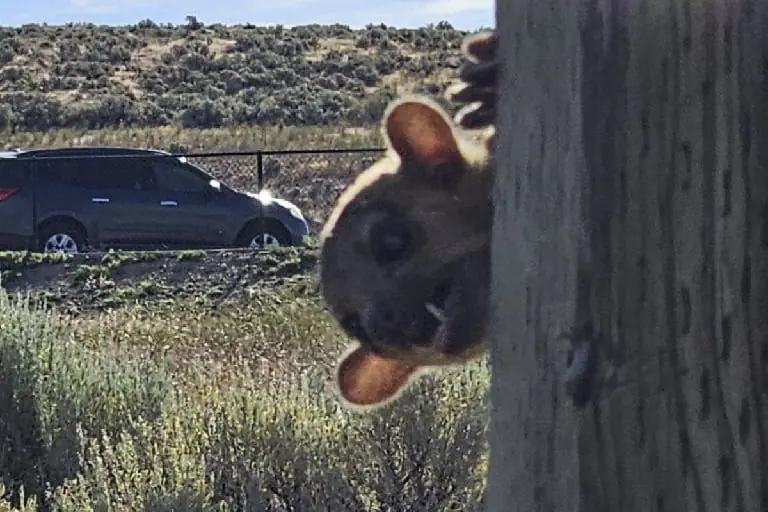Rainforest animal rescued from dusty highway rest stop in Washington state
YAKIMA, Wash. (AP) — Why did the kinkajou cross the road? And what’s a kinkajou, anyway?
One of the mammals — which look like a cross between a monkey and a tiny bear — was found far from its normal rainforest habitat this week at a highway rest stop amid the rolling sagebrush plains of central Washington state, officials say.
Kinkajous have prehensile tails, and this one was spotted Sunday climbing on a tall wooden post along Interstate 82 southeast of Yakima, the state Department of Transportation said in a post on X.
“We don’t know if it was dropped off or escaped,” the post said. The animal was rescued by the state Fish and Wildlife Department.
Kinkajous are carnivores that live in tropical rainforests from southern Mexico through Brazil, according to the Point Defiance Zoo & Aquarium in Tacoma, where this little creature was taken to live temporarily.
With sandy yellow fur, round ears and big dark eyes, they are capable of grasping objects and are often mistakenly called primates, the zoo said.
“Despite their cuteness, kinkajous do not make good pets,” the zoo said.
This particular kinkajou is being quarantined in the zoo’s hospital to ensure it’s not carrying any diseases and it will undergo a comprehensive wellness exam this week, officials said.
Kinkajous are not endangered but are hunted for their fur, and the illegal exotic pet trade threatens their population, according to the zoo.
